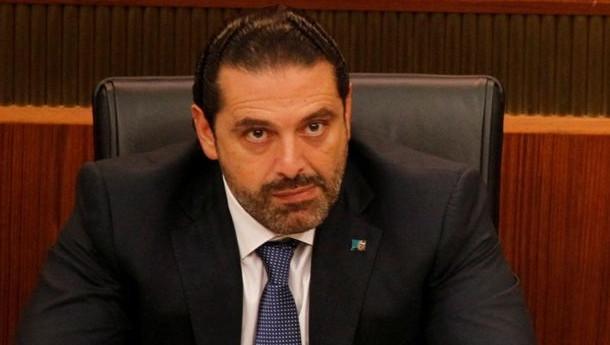
Lebanese Prime Minister Saad al-Hariri announced on Oct. 29 his resignation from government, weeks after an unprecedented wave of protests began in Lebanon amid growing anger at political leaders accused of corruption.
"I will be giving my resignation," Hariri said in a televised speech.
Speaking in a news conference, Hariri said "I have tried all this time to find a way to listen to the voice of the people and to protect the country from security and living risks."
He went on to say: "I do not hide that I reached a dead end to resolve the crisis."
Hariri said he was convinced of the need to create a "positive shock and the formation of a government capable of facing challenges."
Hariri submitted his resignation to President Michel Aoun as popular demonstrations enter their 13th day.
His resignation comes as an unprecedented wave of protests has swept Lebanon for nearly two weeks, demanding the government resigns amid growing anger at political leaders accused of corruption.
Hariri’s initial reaction to the demonstrations was to give the government a 72-hour deadline to pass reforms. Once the timeline lapsed, he announced a reform package that included cutting the salaries of ministers and a tax on banks.
His resignation would defy the powerful Shi’ite Muslim group Hezbollah, whose leader Sayyed Hassan Nasrallah has twice said he was against such a step, citing the risk of a dangerous void.
In the street, supporters of Hezbollah and its Shi’ite ally Amal forced protesters from a roadblock they had set up in Beirut, tearing down their tents and fighting with them, forcing the police to intervene, the first such incident in the capital.
The Hezbollah and Amal supporters fanned out in the downtown area shouting “Shia, Shia” in reference to themselves and cursing protesters who have been calling for revolution.
Hariri last week sought to defuse popular anger through a set of reform measures agreed with other groups in his coalition government, including Hezbollah to, among other things, tackle corruption and long-delayed economic reforms.
But with no immediate steps toward enacting these steps, they did not satisfy demonstrators whose demands include the resignation of his coalition government.
One of the sources, a senior official from outside Hariri’s Future Party, told Reuters the premier would “most probably” announce the government resignation on Oct. 29. The report weighed on Lebanese dollar bonds.
The nationwide protests have paralyzed Lebanon at a time of deep economic crisis - banks were closed for a 10th day on Oct. 29 along with schools and businesses, with the pegged Lebanese pound weakening on a black market.
Lebanon suffers from high unemployment, little growth and one of the highest debts ratios in the world, with a debt burden reaching $86.2 billion in the first quarter of 2019, according to a statement by the Lebanese Ministry of Finance in May 2019.